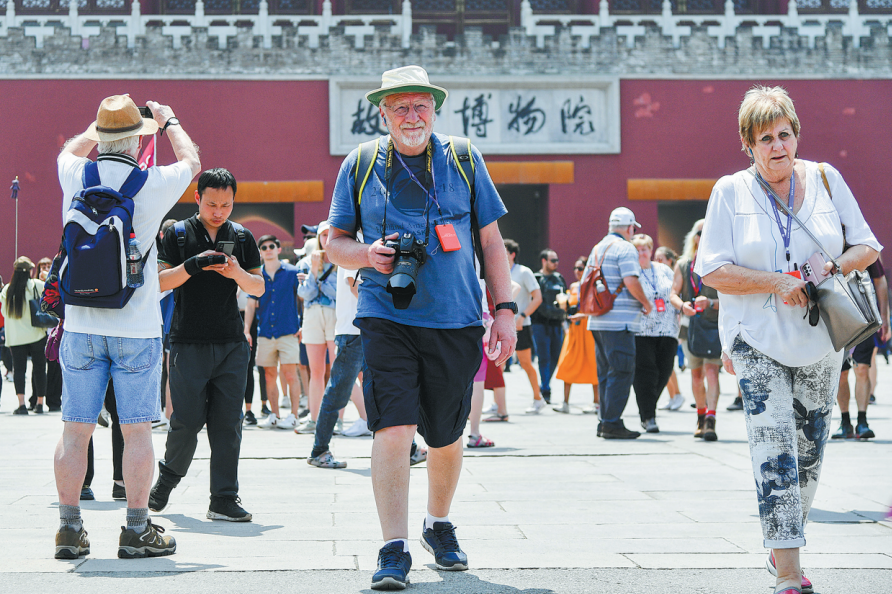Poverty relief official goes extra mile raising villagers' incomes
By ZHU LIXIN in Fuyang, Anhui | China Daily Global | Updated: 2021-05-21 08:40

Land transfer is a form of collectivization, albeit on a smaller scale. By bundling small plots together, it is possible to create an economy of scale.
So far, over 200 hectares, or half the total agricultural land in the village, have been transferred to Niu Chaojun, a major sweet potato producer.
Niu pays 600 yuan to the villagers for the use of each mu and pays the village committee an additional 50 yuan per mu in management fees. The committee then invests a certain amount of that money in Niu's business and receives dividends, which it distributes through a fund as collective income for the villagers.
In a previous interview with China Daily last year, Niu said that he earns a net income of over 6 million yuan from the large-scale plantation, even after paying dozens of villagers to work the land.
Liu said he also helped Niu apply for all kinds of government subsidies and persuaded the government to invest more in infrastructure to benefit Niu's business and the villagers.
As China is shifting the focus of rural development from poverty relief to rural vitalization, Liu said large-scale plantations such as this will have a brighter future than the small, individual plots of traditional household farming.
According to the provincial office of poverty relief, thanks to the efforts of tens of thousands of officials like Liu, Anhui was able to lift 4.84 million people and 3,000 villages out of poverty by the end of last year.
Officials are also expected to help improve administration in the villages, another key goal of the initiative and one that has proved to be especially necessary since the outbreak of the COVID-19 pandemic.
With more than 30 years of experience working with city authorities, Liu had a better understanding of the government's epidemic prevention and control measures and so was able to help village officials properly carry out the requirements.
"As a matter of fact, whenever we have difficulties now, the first person who comes to mind is Liu," said Chen Ping, Party secretary of Chenxiaozhai.
In January last year, when Hubei provincial capital, Wuhan, was in lockdown and people elsewhere in the country were staying home out of safety concerns, the Lyuzhai township hospital, which is responsible for the health of Chenxiaozhai villagers, called Liu for face masks.
He received the call in the morning and worked hard to get over 1,000 surgical masks. That afternoon, he took them to Lyuzhai in person. He then volunteered to stay with the villagers, many of whom had recently returned from all over the country for the Spring Festival.
"With me there, the villagers were less nervous and were more willing to cooperate with medical workers," Liu said.
His work in Chenxiaozhai was expected to end in April 2020, but he extended his stay to the end of this month to oversee the transition.
"The delay gives me more time to stay with the villagers and my colleagues," said Liu, adding that eventually he will have to leave to take up new responsibilities.
























